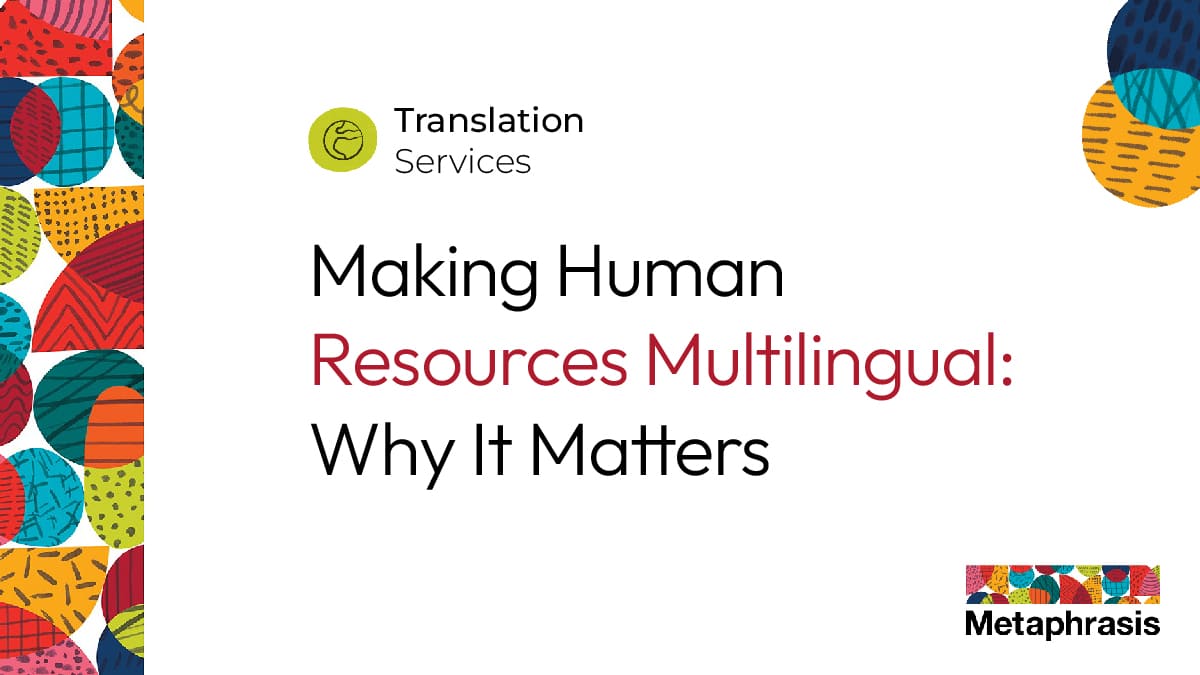
Making Human Resources Multilingual: Why It Matters
Whether you are a multinational company with offices overseas or a local Chicago business with non-English speaking employees, you must be adept at bridging the gaps between languages and cultures in order to recruit and maintain the most valuable talent. An often overlooked component of this is language services usa.
From translating employee manuals, policy procedure documents, benefits information, to interpreted assets like training videos and company announcements, human resources functions are the foundation of a proficient and educated workforce. They affect many facets of business, from employee retention and morale, to safety, the effectiveness of customer service, productivity and even exposure to lawsuits.
Alternatively, failure to provide proper and thorough translations or interpretations of human resources assets can lead to misunderstandings about policies and violations of important procedures, resulting in accidents, high employee turnover, legal complications and ultimately a negative impact on your company’s bottom line.
With vast opportunities to do business with a diverse array of cultures, it’s vital for organizations to have a multilingual human resource capacity. Here’s why:
Multilingual-Multinational Work Force
The US population is a melting pot of cultures, which brings about a mix of nationalities, culture, and languages to account for in the workforce. What does having a multilingual work force mean for businesses? Simply put, it emphasizes the importance of being prepared to support a multilingual workforce, with proper training and informative materials. That means making sure your human resources department is equipped with properly translated documents and access to interpreters to achieve success.
Why Make HR Multilingual?
First, it creates a culturally inclusive work environment. If you’re doing business abroad or hiring a culturally diverse workforce, providing documents and experiences in your employees’ native languages sends a clear message of inclusiveness. This can play a tremendous role in loyalty and employee retention, which will ultimately impact your bottom line.
Secondly, it ensures that you have the proper staffing to service customers in multiple languages. If you intend to do business in culturally diverse markets you will need culturally diverse employees who understand the local markets you wish to target. Properly translated policies, procedures and handbooks are essential to ensuring the success of your global reach. Additionally, offering training sessions, internal events and other interactive experiences with interpreters will also enhance employee success.
Why Now?
Open enrollment starts November usually. Every company, large and small, goes through this process and for many non-English speaking employees, it is extremely confusing. As you know, there are many options and choices to be made and in many cases, the portal is a big stumbling block. Metaphrasis can help! We have worked with clients right here in Chicago to provide language services specific to Open Enrollment. From translating HR communications about Open Enrollment to providing professional interpreters to come in and walk employees through the portal and options available to them. Overall, our clients have seen a much higher engagement and employee satisfaction as a result of these types of programs.
If you find yourself hiring and wanting to effectively engage with multilingual employees or are considering expanding your market, or would like to bring the Metaphrasis team in for Open Enrollment season, let us know how we can help. Call us at (815) 464-1423.
